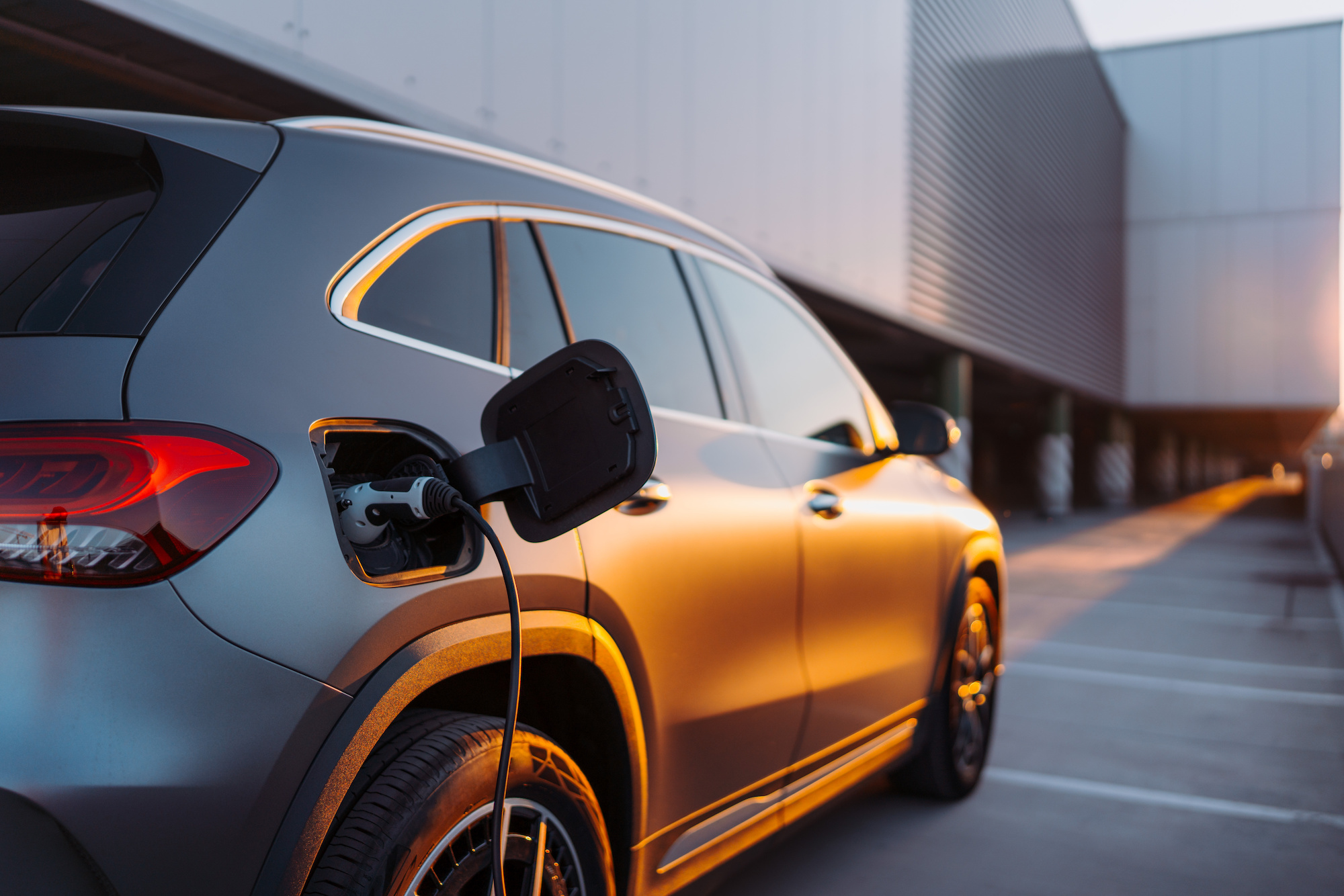What Range Can You Expect With EVs?
Published on: Tuesday, 24 January 2023 | Author: Jack Dreyer
With electric vehicle ownership increasing year on year, there’s a much broader array of EVs for sale. Demonstrating that is the fact that there are nearly 680,000 battery-electric cars registered in use in the UK — and this high demand has fed yet more innovation.
Early EVs like the 2010 Nissan LEAF could drive around 73 miles on a full charge. But things have changed dramatically. Today, the most top-end electric vehicles can travel up to 450 miles before they need to be recharged. But if you’re looking to buy an electric vehicle, you’re probably less concerned about the extremes — you might be wondering what to expect from common electric vehicles on the market today.
How far can electric cars go?
For most EVs for sale today, you can expect a range between 100 and 300 miles.
Let’s take a look at some popular examples to help you get an idea of where to start.
| Car | Range (miles) | Cost (new) | Cost (used) |
|---|---|---|---|
| Citroen Ami | Up to 46 | From £8,095 | From £7,795 |
| Smart EQ Fortwo | Up to 81 | From £22,225 | From £16,000 |
| MINI Electric | Up to 142 | From £29,000 | From £19,000 |
| Fiat 500 Electric | Up to 199 | From £22,800 | From £16,600 |
| MG4 EV | Up to 218 | From £26,995 | N/A |
| Nissan Leaf | Up to 239 | From £28,995 | From £9,000 |
| Renault Zoe | Up to 239 | From £29,995 | From £17,000 |
| Kia Niro EV | Up to 285 | From £36,795 | From £30,950 |
| Tesla Model Y | Up to 331 | From £52,990 | From £47,000 |
| BMW i7 xDrive60 | up to 387 | From £110,545 | N/A |
The most frequently purchased EV in the UK in 2022 was the Tesla Model Y at the top end, while the Nissan LEAF remains an incredibly popular option for the everyday driver.
How much range do you need?
If you’re considering buying, then, one of the more important things to consider will be the amount of range you actually need and what your budget is. As you can see, range varies dramatically with cost — so it’s worth considering your driving habits.
For those that need to nip up the road to the shop every now and then, the Citroën Ami with its 28 mph limit might do the trick. But for the average driver who drives around 7,000 miles a year (around 134 miles a week), the MG4 EV can take them the distance.
Those that need an EV for long business trips, the Tesla Model Y or BMW i7 are great – if expensive – options with impressive ranges.
What can impact EV range?

When looking for EVs, you will see that their ranges are given alongside the acronym WLTP. This stands for Worldwide Harmonised Light Vehicle Test Procedure and is the testing process used to get an accurate view of fuel economy.
The WLTP takes a higher variety of driving conditions into consideration then previous tests, but not all. So it’s important to keep in mind that EV range can vary greatly depending on a few different factors, for example:
- Driving style and road conditions
- Weather (temperature)
- Battery age and maintenance
The faster you drive, the shorter your EV’s range will generally be. Most often, EVs have the best range in city traffic, where stopping and starting causes the regenerative braking to kick in.
Very low temperatures can also impact an EV’s range, as batteries are simply less able to hold charge. Similarly, colder temperatures mean operating climate control and heated seating, which uses power.
Lastly, batteries naturally lose some maximum charge potential over time — but this is a very gradual process. Lithium-ion batteries, used by most EV manufacturers, are considered to be incredibly long-life.
The future of electric car ranges
You might’ve heard of the term ‘range anxiety’. Akin to that feeling you get when your petrol light comes on and you’re not sure how many miles you can squeeze in to reach a petrol station, ‘range anxiety’ is the uncertainty experienced by EV drivers. There’s an extra layer of worry that comes with range anxiety, too — petrol stations are far more common than electric charging points!
For this reason, many believe that it’s worth waiting until electric cars can go much further. But for the average driver, there really is something available for everyone, with many EVs able to travel up to 200 miles at a time — a comfortable drive from London to Sheffield. The rest is up to budget.
It’s highly likely that electric car ranges will increase dramatically in just the next few years. Dutch company, Lightyear, have already promised a 500-mile range on their incoming Lightyear 2 Model.
But ranges won’t just increase at the top of the price spectrum — they’ll averagely rise across it as battery technology improves and more people make the switch. We’re excited to see what the future holds for EV ranges!




